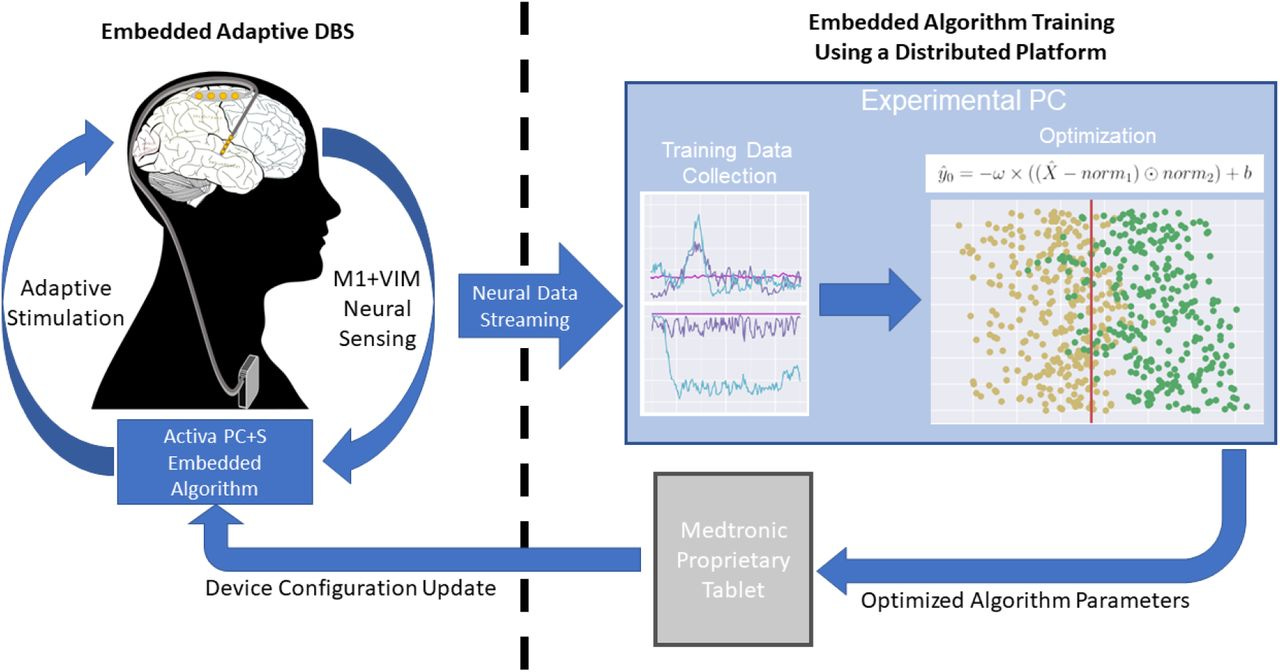Weekly Dose of Optimism #108
Sun Cable, AstroForge, aDBS, ElevenLabs Impact, Productivity Optimism
Today’s Not Boring is brought to you by… Wander.com
Packy here. Our friends over at Wander have made tremendous progress since we last checked in with them. They now have more than 100 locations on the platform and are on track to hit 200+ properties by the end of the year. And each one is unreal.
As you know, Wander isn’t your typical vacation rental. They combine the quality of a luxury hotel with the comfort of a private vacation home. And they’ve added stunning flagship locations like Wander Falling Leaves in Austin, Texas, Wander Oconee Shores in Georgia, Wander Islamorada Beach in the Florida Keys and Wander Petra Island in New York (which was designed by Frank Lloyd Wright).
Each Wander property comes with inspiring views, hotel-grade amenities, dreamy beds, and top-tier cleaning, with 24/7 concierge service to give you the best vacation every time.
Want to experience Wander for yourself? Wander made a special offer just for Not Boring readers: use code NOTBORING to get $300 off your next booking (just use before it expires September 30th). Plus, they’re giving away a free 5-night trip plus $10,000 in cash at wander.com/notboring. To enter, just create an account here, that’s it. Happy exploring.
Hi friends 👋,
Happy Friday and welcome back to our 108th Weekly Dose of Optimism.
Another rock solid week for the optimists. Another tech billionaire plunging resources into an ambitious, worthy cause. Another space startup taking on a laughably hard, but massive opportunity. Another novel treatment for a traditionally elusive neurological disease. Another AI startup using its products to help those most in need. All topped off by a data-driven argument for American optimism.
Let’s get to it.
(1) Sun Cable: Plibersek approves first stage of world’s biggest solar and battery project
Giles Parkinson for Renew Economy, h/t @patrickc
Federal environment minister Tanya Plibersek has given approval for the first stage of what will be the biggest renewable and storage project in the world, the Sun Cable Australia-Power Link.
The world's largest renewable energy and storage project was just approved. The Sun Cable Australia Power Link is a massive infrastructure project planning to generate solar and wind energy in Australia's Northern Territory, store it in batteries, and transmit it via a high-voltage transmission line to Darwin and potentially export it to Singapore through a sub-sea cable.
This stage of approvals includes the go-ahead for an 800 km transmission link to Darwin, the capital city of the Northern Territory in Australia, and up to 10 gigawatts of solar and battery storage…which an absolutely massive amount of energy. We’re still a ways off from Sun Cable powering Australian homes, with the final investment decision targeted for 2027 and electricity production expected to begin in the 2030s. But this approval is a big step in the project and in Australia’s overall ambitions as a renewable energy leader.
The Sun Cable Australia Power Link project was kicked off by Mike Cannon-Brookes back in 2018. Cannon-Brookes is the co-founder/co-CEO of the Australian project management software darling Atlassian. Over the last 6 years, he’s reinvested some of his estimated $10B net worth back into the Sun Cable project. Add Mike to list of tech folks who made billions of dollars in the 2010s/early 2020s that are now taking on ambitious, societal scale challenges. Good on ya, mate!
(2) Against all odds, an asteroid mining company appears to be making headway
Eric Berger for Ars Technica
But it turns out that I did hear from Acain and Gialich again about their asteroid mining venture, AstroForge. On Tuesday the co-founders announced that they have successfully raised $40 million in Series A funding and shared plans for their next two missions. AstroForge has now raised a total of $55 million to date.
Asteroid mining. It’s one of those promising startup ideas/categories that sounds almost too good to be true. You’ll hear things like: just one asteroid contains quadrillions of dollars of iron and nickel and there are hundreds of thousands of near-Earth asteroids that contain precious metals. But despite the advancements in space and the size of the prize, we haven’t done asteroid mining before. Costs are still too high and the technology to pull it off is still under development. But despite these challenges, AstroForge still…forges…ahead.
The startup just raised $40 million in Series A funding, bringing its total to $55 million. It also announced plans to launch two missions: Odin, set for late 2024, aims to fly by a metallic-rich asteroid, and Vestri, scheduled for 2025, intends to dock with the asteroid and sample its materials.
Frankly, I have no idea how far away we are from mining asteroids, but I am rooting for companies like AstroForge that are making a real go at the opportunity.
Oehrn et al in Nature
We identified stimulation-entrained gamma oscillations in the subthalamic nucleus or motor cortex as optimal markers of high versus low dopaminergic states and their associated residual motor signs in all four patients. We then demonstrated improved motor symptoms and quality of life with adaptive compared to clinically optimized standard stimulation. The results of this pilot trial highlight the promise of personalized adaptive neurostimulation in PD based on data-driven selection of neural signals.
Parkinson's is a neurological disorder that affects movement, causing symptoms such as tremors, stiffness, and imbalance. It’s the result of degeneration of dopamine-producing neurons in the brain. It directly impacts about 1 million people in the U.S. and 10 million globally. There isn’t yet a cure for Parkinson’s but there are a number of relatively effective treatments for managing symptoms, including deep brain stimulation (DBS.)
Regular DBS provides constant electrical stimulation to specific brain areas to manage Parkinson's symptoms, with settings that stay the same regardless of changes in symptoms or brain activity. New research, however, highlights the promise of Adaptive DBS. Adaptive DBS (aDBS) adjusts stimulation in real-time based on the patient's brain activity and symptoms, using specific neural signals to tailor the treatment. It uses specific neural markers, such as gamma oscillations detected in the subthalamic nucleus or motor cortex, to modulate the intensity or pattern of the stimulation.
Ultimately, the research shows that aDBS improves motor symptoms and quality of life in Parkinson's disease patients compared to standard continuous DBS. While alleviating the symptoms of Parkinson’s is big in its own right, aDBS could also prove effective in treating a whole host of neurological diseases like tremors, epilepsy, OCD, and Tourettes.
(4) We're launching our Impact Program Aims to Empower 1 Million Voices through AI Voice Technology
From ElevenLabs
We're launching the ElevenLabs Impact Program to help 1 million people reclaim their voice. We’re partnering with nonprofits to provide free licenses to enhance accessibility, advance education, and improve shared cultural experiences. Our first initiative, made possible through partnership with @BridgingVoice and @DrScottMorgan, is aimed at helping everyone with ALS / MND preserve their voice through free access to our technology to create personalized digital voices that closely match their natural speech.
ElevenLabs is partnering with a few non-profits and foundations to offer free licenses to their software to people who are at risk of losing their voice.
ElevenLabs makes AI-powered text-to-speech tech, producing highly realistic replicas of a person’s voice. And they can synthesize these replicas using only a few samples. The company has raised about $100M and most recently at a $1B valuation, and now they’re starting to use some of those resource for good.
ElevenLabs is focusing in on Amyotrophic Lateral Sclerosis (ALS) and Motor Neuron Disease (MND), which together impact about 300,000 people per year. ALS impairs speech by weakening the muscles needed for articulation, leading to slurred and eventually loss of speech. ElevenLabs is now offering free access to its voice cloning tech to ALS/MND patients who have lost or are at risk of losing their ability to speak.
ElevenLabs voice cloning and Neuralink (which just provided a positive update in its second patient) are going to give back capabilities to a lot of folks who thought they had lost those capabilities forever. We love to hear it.
(5) A data-driven case for productivity optimism
Brian Albrecht for Noahpinion
Despite this gloomy picture, a broader look at the economy offers reasons for optimism…My optimism comes from three different sources: recent momentum, America’s enduring competitive advantage, and technological change.
Brian Albrecht, Chief Economist at the International Center for Law & Economics, presented his case for productivity optimism in a guest post in Noah Smith’s newsletter Noahpinion. Albrecht was sure to point out that U.S. productivity has been sputtering for nearly two decades and that that decline in growth has a real impact on American households. But, Albrecht is optimistic about the future of American productivity and broke down his argument into three points:
Recent Momentum: Productivity has upticked since 2021, suggesting that the economy may be entering a period of sustained improvement. The persistence of these gains, now three years on, hints at a structural shift rather than a temporary spike.
Competitive Advantage: The U.S. excels in reallocating resources efficiently, with studies showing that productivity-enhancing innovations are rapidly adopted by leading firms. This adaptability, Albrecht argues, could allow the U.S. to maintain its global competitive edge.
Technological Change: AI and automation are expected to drive significant productivity gains, similar to the productivity boost experienced during the late 1990s tech boom.
This all sounds about right to me — the U.S. is moving in the right direction, its capitalist economy is better than other countries at allocating resources effectively, and its leadership in AI will impact how efficiently we get stuff done. Over the next couple of months, we’re going to hear a lot about how America ain’t what it used to be or how the system is broken — some of that is true, some of that is just pure political fear-mongering. But keep in mind that not only is the U.S. currently in a very strong position, but the tides are in our favor for another period of prosperity and growth.
That’s my country!
Have a great weekend y’all.
Thanks to Wander for sponsoring! We’ll be back in your inbox on Tuesday.
Thanks for reading,
Packy + Dan








I enjoyed Dalio's book as well, but you should also read (in case you haven't) Peter Zeehan's "The End of the World is Just the Beginning" where he lays out a quant case for China's decline and America's continued leadership. It's fascinating to see these two thinkers come to opposite conclusions, both based on relatively unbiased numbers.
Once America elects next Democratic president, it can compete then with China on who is the most socialist (or less capitalist for that matter) country. So much for the capitalistic optimism that Packy expresses here.
"Harris's economic agenda is estimated to increase the federal deficit by $1.7 trillion over a decade."
So much for the US debt reduction.
And once more insanities come into life, like taxing unrealised gains, so much more for for competitiveness of US capitalist companies and minds.